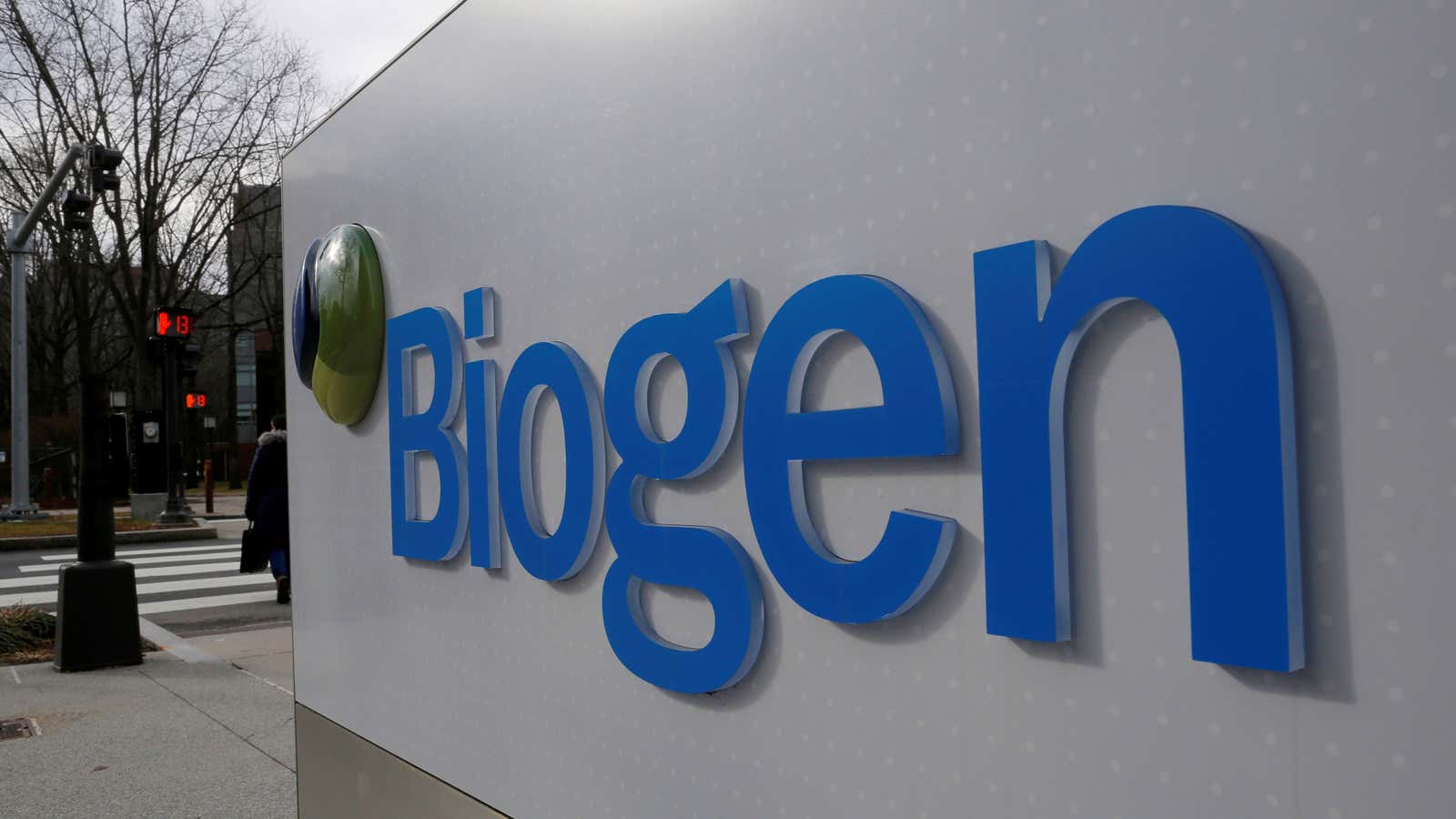Amidst hundreds of failures of drugs to treat Alzheimer’s disease, Biogen reported late Thursday (July 5) a rare positive result.
In a phase II trial of roughly 900 patients with early stages of Alzheimer’s, Biogen reported that patients who received the highest dose of the drug after 18 months showed a slower progression of the disease than others in the group. Biogen, a Massachusetts-based pharmaceutical company, is currently partnered with a Japanese company called Eisai.
They plan to work with US regulators to conduct a larger, phase III trial based on these results. If successful in that stage of testing, the group could bring the first drug to treat Alzheimer’s to market in over a decade.
The drug, referred to as BAN2401, was initially declared a failure after 12 months of its planned 18-month trial. Biogen and Eisai decided to let the study run its full course, and in the process uncovered what they say is a huge finding.
Detailed data haven’t yet been made public, but Biogen and Eisai say that that at high doses, the drug had significant effects at reducing both cognitive decline and the accumulation of a type of protein called amyloids in the brain, compared to a placebo. Brain swelling, a possible dangerous side effect of the drug, occurred in less than 10% of participants.
Lynn Kramer, Eisai’s chief medical officer, told STAT the trial is the first large study to link the buildup of amyloid to cognitive decline, adding support to one of the long-suspected hypotheses about the cause of Alzheimer’s.
Investors took the announcement as good news; Biogen’s stocks increased by 23% the day after.
But the details of the trail remain vague. In the trial, the 900 patients were split up into six groups. One group was given a placebo, and the other five each got a different dosage of BAN2401. Only those taking the highest dose saw significant positive outcomes, and the drug companies haven’t disclosed how many participants were actually in this high-dosage group. It’s also unclear how big the actual effect size was. In addition, as STAT reports, Biogen and Eisai used a different metric to measure cognition than that used in most Alzheimer’s studies.
Kramer told STAT his team will present the full details of the study at a “future medical meeting.”
